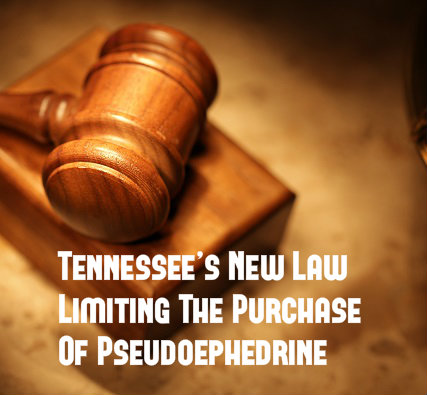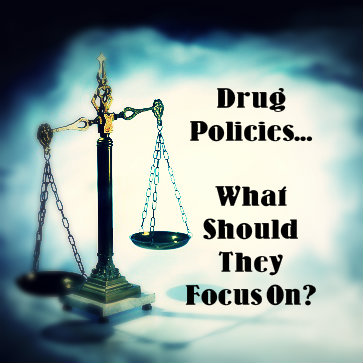18 Dec 2014
The Fight Against Stigma For Pregnant Addicts
Babies born to addicted mothers can face a very difficult start in life. When a pregnant woman is addicted to drugs and continues to use, her baby will come into this world with drugs in his or her system. A newborn who is exposed to drugs such as opiates or narcotics while in the womb will be born with a variety of problems know as neonatal abstinence syndrome.
Drugs like heroin, cocaine or oxycodone pass through the placenta from mother to baby. During pregnancy, the growing baby develops into an addict. Upon birth, the baby is immediately craving drugs, and doctors will have to give the baby drugs that are the same or very similar to the ones taken by the mother to try to ease inevitable withdrawal symptoms. Drug-addicted babies are typically inconsolable. Symptoms of neonatal abstinence syndrome can last from several weeks to several months.
In a perfect world, women who are addicted to drugs would be able to quit using before ever getting pregnant. But it’s rarely that easy to discontinue using drugs. Even when an addict knows she is pregnant and may be harming her child, the compulsion to do drugs is still there.
Difficulties Of Being Pregnant And Addicted
 It’s a growing problem, and there aren’t easy solutions. Programs aimed at helping pregnant women overcome their drug problems are often discontinued or reduced because of funding cuts. Even when programs are available to help pregnant addicts, the women are often afraid to reach out for help.
It’s a growing problem, and there aren’t easy solutions. Programs aimed at helping pregnant women overcome their drug problems are often discontinued or reduced because of funding cuts. Even when programs are available to help pregnant addicts, the women are often afraid to reach out for help.
There is a lot of stigma attached to addiction in pregnancy. Non-addicts are quick to assume that addiction is a choice, and that an addict could stop using if she really wanted to. In some states, using drugs while pregnant may even be considered a crime. In Tennessee, for example, drug use while pregnant is classified as an assault.
When a pregnant addict is arrested instead of offered help, it gives a message to other pregnant addicts that it may be dangerous to try to get help. Many try to detox on their own, which can be extremely dangerous and even life-threatening. Fear of legal consequences, such as losing custody of their other children, stops many women from reaching out for help from medical professionals. Another fear is that the newborn baby will be taken away at birth. So a large number of pregnant addicts continue to suffer in silence.
De-Stigmatizing Addiction In Pregnancy
There are few families that haven’t been touched by addiction in some way. Yet most pregnant addicts are unsure whom it would be safe to talk to, if anyone. Many of them suffer through their entire pregnancies scared and alone. They may continue to abuse drugs because it is the only life they know, or they may try to quit drugs without help, a goal that is rarely successful.
Addiction is frequently misunderstood, and often people see it as a moral failing rather than an illness. This judgmental attitude is intensified when an unborn child may be affected.
If stigma could be removed from addiction in pregnancy, both mothers and babies would benefit. If pregnant addicts were free to seek help and know they wouldn’t be judged or condemned, they could approach motherhood with strength and courage rather than fear and shame.
When pregnant addicts avoid getting help, it is really a form of denial. Addicts and their families may try to pretend that if they ignore the problem of addiction, it will go away. Pregnant addicts learn to lie to their doctors and hide any evidence that they are actively abusing drugs.
Stigma prevents addicts from obtaining good prenatal care and results in babies who are born addicted. These babies may also be born with other medical problems. Many of these problems would be prevented if the mothers were free to get help and didn’t have to live in fear of asking for it.
Few understand the hold addiction has on people and how hard it can be to overcome the compulsion to turn to mind-altering drugs. Addiction is a disease, and women who suffer from it deserve to have options for recovery without fear of stigma or judgment. So do their unborn children.
Why Do Women Continue To Drink During Pregnancy? – Understand More About Why Woman Use While Pregnant
Much of the current drug news from around the country focuses on heroin and narcotic painkillers. Methamphetamine is sometimes thought of as yesterday’s news, but in many areas it is still a raging problem. In 2013, news outlets reported that Tennessee had become the leading state in the U.S. for meth use. Now a new law has gone into effect that legislators and law enforcement officials hope will crack down on the epidemic in Tennessee that is costing taxpayers $1 billion a year.
The Meth Problem
It was more than a decade ago that meth labs started springing up around the country, but particularly in rural areas. Methamphetamine is a controlled substance that can be prescribed by a doctor, but rarely is. The side effects and the potential for abuse are so great that it is a last-resort medication for some medical conditions, including ADHD and obesity.
Effects Of Meth
Meth is susceptible to abuse because it is a stimulant and gives the user energy as well as a euphoric feeling. On the downside, meth can cause:
 high blood pressure
high blood pressure- an elevated body temperature
- dry mouth
- jaw-clenching
- memory loss
- aggression
- paranoia
- anxiety
- insomnia
- brain damage
- organ damage
- severe dental problems
- violent behavior
It is also highly addictive and with prolonged and continued use, the negative side effects increase.
Meth has become such a huge problem because it is relatively easy to make. With just a few ingredients, including an over-the-counter cough medicine ingredient, anyone can make it in a home lab. These labs are abundant in Tennessee and the drug has been having disastrous effects on individuals and families in the state.
How Tennessee’s New Law Is Limiting The Purchase Of Pseudoephedrine
While other states have enacted and enforced strict laws regarding the purchase of cough medicine that have helped cut down on meth manufacturing and use, Tennessee has fallen behind. A bill passed in April can now change the course of Tennessee’s meth trajectory. The new law restricts the purchase of medicines containing pseudoephedrine, the cough medicine ingredient for making meth, to 48 tablets per month and 240 per year. The cap previously sat at 75 tablets per month. Some lawmakers wanted to slash that maximum even further, but a compromise was set at 48.
It may seem like a no-brainer to restrict pseudoephedrine, but there are plenty of law-abiding Tennesseans who depend on the medication for allergy relief. Some opponents of the bill argued that it was unfair to restrict access to the medication and stated that most of the meth used in Tennessee comes from other states. Still, the majority of lawmakers agreed that slashing the maximum allowance would curb meth use in the state.
As part of the restriction on buying pseudoephedrine, consumers’ purchases of the medication will be tracked. Those with a real medical need for more pseudoephedrine will be able to go over the limit with a doctor’s prescription. The need for more restrictions on meth-making ingredients is great and many feel that this new law meets that need. Others are skeptical, but only time will tell if Tennesseans are really ready to kick the meth habit.
Read Other News In Addiction And Addiction Rehab
10 Dec 2013
Are Current Drug Policies Really Not Working?
A report out of the United Kingdom highlights the widespread distribution of illegal street drugs, with the researchers calling the war on drugs a failure. The experts say it’s time to address drug use through a public health approach rather than as a criminal justice initiative.
Illegal Drugs – Stronger, Cheaper And More Readily Available
The study from the International Centre for Science in Drug Policy, which examined decades of drug surveillance data involving the trafficking of marijuana, cocaine and opiates like heroin, showed that illegal drugs are cheaper, purer and more available than ever.
 The findings highlighted the decrease of drug prices between 1990 and 2010, while purity and potency increased. In Europe the price of opiates and cocaine decreased by 74 percent and 51 percent during that time period.
The findings highlighted the decrease of drug prices between 1990 and 2010, while purity and potency increased. In Europe the price of opiates and cocaine decreased by 74 percent and 51 percent during that time period.
In addition, seizures of drugs increased during the study period. In most locations that were monitored the amount of cocaine, cannabis and heroin confiscated by law enforcement increased substantially during the years examined.
Should The Focus On Curbing Drug Use Shift?
The authors of the report note that the findings should be taken as an indication that current strategies to curb drug distribution are failing. However, despite these concerns, the focus for national governments has been law enforcement. Other approaches, such as decriminalization and legal regulation, have not been broadly incorporated.
Co-author Dr. Evan Wood, scientific chairman of the Centre, explained that the focus should shift to drug use as a public health concern rather than a criminal charge. Wood also talked about the need for increased addiction treatment availability and other public health strategies.
Just days before the findings were released, a senior UK police officer offered his opinion that decriminalization would be more effective than the current approach.
How Decriminalization Of Drug Offenders May Be A Positive Thing
Mike Barton, Chief Constable of Durham Police, voiced his position that drug users needed treatment and care, not criminal justice. Barton also said that decriminalization would threaten the motivation of dealers by taking away their income and power.
Instead, prohibition funds the drug dealers, says Barton, who is calling for an open debate that acknowledges the problems that still exist in the fight to reduce drug use.
Recovery Treatment Or Criminal Charges?
While the overall global strategy is prohibition, there are some national governments incorporating different policies. In Portugal individuals caught possessing drugs can avoid criminal charges if they undergo treatment.
While a more public health-focused approach seems clear to some in the scientific community, public officials have been less enthusiastic. No political party in the UK supports a legal regulation approach when it comes to hard drugs, but some politicians support legalizing marijuana.
Many recognize the delicate balance between treating drug use as a criminal justice issue and providing support for the recovery of the user. The community must be protected from the influence of the drug market, but the individual must be supported in their recovery, too.
Read More About Drug Use In The News


